Refine listing
Actions for selected content:
2334 results in Cambridge Elements
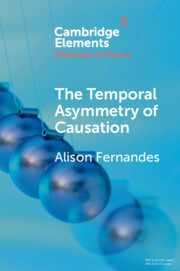
The Temporal Asymmetry of Causation
-
- Published online:
- 10 May 2023
- Print publication:
- 01 June 2023
-
- Element
- Export citation
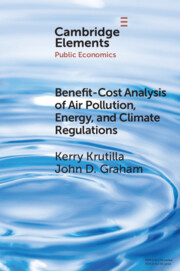
Benefit-Cost Analysis of Air Pollution, Energy, and Climate Regulations
-
- Published online:
- 10 May 2023
- Print publication:
- 08 June 2023
-
- Element
-
- You have access
- Open access
- HTML
- Export citation
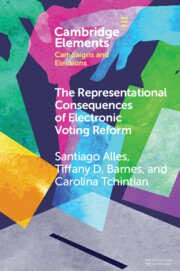
The Representational Consequences of Electronic Voting Reform
- Evidence from Argentina
-
- Published online:
- 09 May 2023
- Print publication:
- 08 June 2023
-
- Element
- Export citation
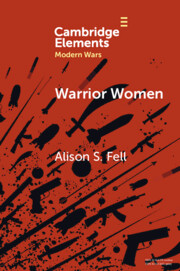
Warrior Women
- The Cultural Politics of Armed Women, c.1850–1945
-
- Published online:
- 08 May 2023
- Print publication:
- 18 May 2023
-
- Element
- Export citation
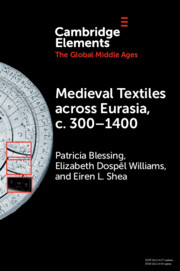
Medieval Textiles across Eurasia, c. 300–1400
-
- Published online:
- 08 May 2023
- Print publication:
- 25 May 2023
-
- Element
- Export citation
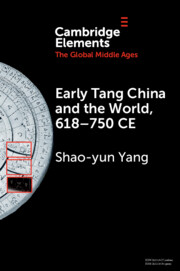
Early Tang China and the World, 618–750 CE
-
- Published online:
- 05 May 2023
- Print publication:
- 25 May 2023
-
- Element
- Export citation
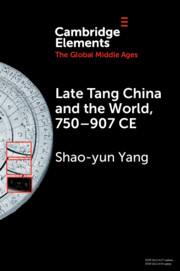
Late Tang China and the World, 750–907 CE
-
- Published online:
- 05 May 2023
- Print publication:
- 25 May 2023
-
- Element
- Export citation
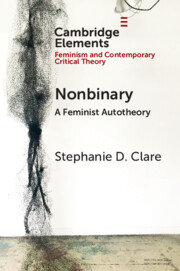
Nonbinary
- A Feminist Autotheory
-
- Published online:
- 05 May 2023
- Print publication:
- 01 June 2023
-
- Element
- Export citation
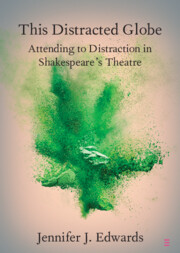
This Distracted Globe
- Attending to Distraction in Shakespeare's Theatre
-
- Published online:
- 04 May 2023
- Print publication:
- 25 May 2023
-
- Element
- Export citation
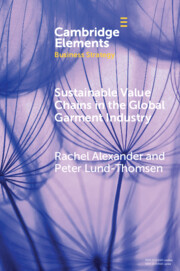
Sustainable Value Chains in the Global Garment Industry
-
- Published online:
- 04 May 2023
- Print publication:
- 25 May 2023
-
- Element
- Export citation
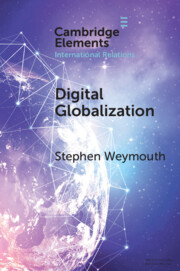
Digital Globalization
- Politics, Policy, and a Governance Paradox
-
- Published online:
- 04 May 2023
- Print publication:
- 01 June 2023
-
- Element
- Export citation
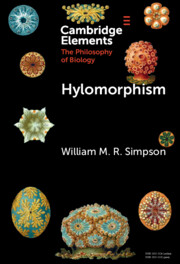
Hylomorphism
-
- Published online:
- 03 May 2023
- Print publication:
- 20 July 2023
-
- Element
-
- You have access
- Open access
- HTML
- Export citation
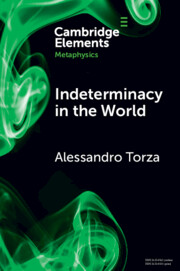
Indeterminacy in the World
-
- Published online:
- 03 May 2023
- Print publication:
- 01 June 2023
-
- Element
- Export citation
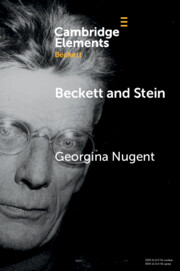
Beckett and Stein
-
- Published online:
- 01 May 2023
- Print publication:
- 25 May 2023
-
- Element
- Export citation
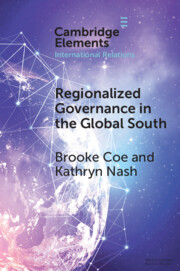
Regionalized Governance in the Global South
-
- Published online:
- 27 April 2023
- Print publication:
- 25 May 2023
-
- Element
-
- You have access
- Open access
- HTML
- Export citation
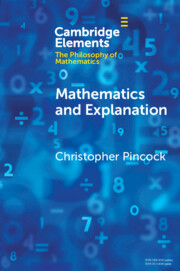
Mathematics and Explanation
-
- Published online:
- 27 April 2023
- Print publication:
- 25 May 2023
-
- Element
- Export citation
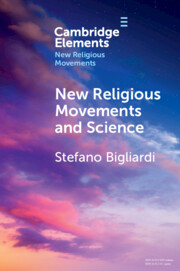
New Religious Movements and Science
-
- Published online:
- 25 April 2023
- Print publication:
- 18 May 2023
-
- Element
- Export citation
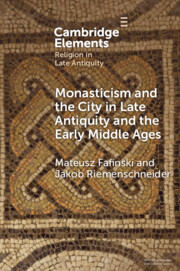
Monasticism and the City in Late Antiquity and the Early Middle Ages
-
- Published online:
- 25 April 2023
- Print publication:
- 18 May 2023
-
- Element
- Export citation
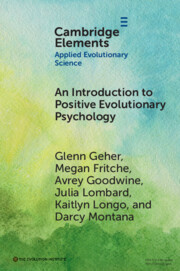
An Introduction to Positive Evolutionary Psychology
-
- Published online:
- 25 April 2023
- Print publication:
- 18 May 2023
-
- Element
- Export citation
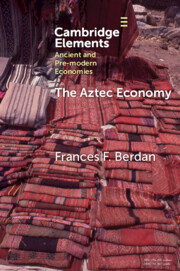
The Aztec Economy
-
- Published online:
- 25 April 2023
- Print publication:
- 18 May 2023
-
- Element
- Export citation
